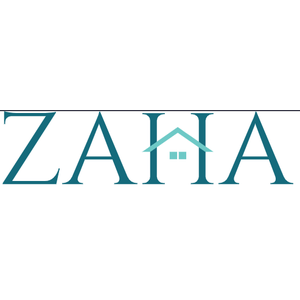Dubai’s healthcare sector is soaring to new heights, cementing its reputation as a global hub for medical excellence. By 2025, the emirate is poised to redefine patient care through cutting-edge technologies, with health information management at the heart of this transformation. Imagine a healthcare ecosystem where patient data flows seamlessly, clinicians make data-driven decisions in real-time, and hospitals operate with unmatched efficiency. This is the future Dubai is building, and for B2B healthcare service providers, hospitals, and clinics, staying ahead means embracing these innovations. In 2023, the UAE’s digital health market was valued at $619.3 million, with a projected growth rate of 23.3% annually through 2030. Health information management, the backbone of this digital revolution, is enabling providers to enhance patient outcomes, ensure compliance, and streamline operations. This article dives into the top trends shaping health information management in Dubai for 2025, from electronic medical record systems to hospital information systems, offering actionable insights for stakeholders ready to lead the charge.
The Growing Importance of Health Information Management in Dubai
Health information management is no longer a back-office function; it’s a strategic pillar driving Dubai’s healthcare ambitions. As the emirate aligns with its Health Sector Strategy 2021–2071, the focus is on creating a world-class, patient-centric healthcare system. Health information management plays a critical role by ensuring patient data is secure, accessible, and actionable. This section explores why health information management is indispensable for B2B healthcare providers, hospitals, and clinics in 2025, highlighting Dubai’s vision, the benefits of robust data management, and emerging trends. By understanding these dynamics, stakeholders can position themselves as leaders in a rapidly evolving market.
Dubai’s vision for healthcare excellence is ambitious, rooted in initiatives like the National Unified Medical Record (NABIDH) platform, which connects patient data across public and private facilities. This unified approach enhances care coordination, reduces redundancies, and empowers clinicians with comprehensive patient histories. Health information management systems are the engine behind NABIDH, ensuring data integrity and compliance with stringent regulations. Beyond connectivity, these systems enable predictive analytics, allowing providers to anticipate patient needs and optimize resource allocation. For hospitals and clinics, this translates to better patient outcomes and operational efficiency, while service providers gain a competitive edge by offering compliant, scalable solutions.
The benefits of health information management extend across the healthcare value chain. For providers, it means streamlined workflows, reduced administrative burdens, and enhanced decision-making through real-time data access.
Health Information Management in Dubai 2025 Trends
Dubai’s healthcare sector is undergoing a seismic shift, positioning the emirate as a global leader in medical innovation. By 2025, the integration of advanced technologies will redefine how healthcare is delivered, with health information management at the core of this transformation. Picture a future where patient data flows seamlessly across hospitals, clinics, and service providers, enabling real-time decision-making and unparalleled efficiency. This is Dubai’s vision, and for B2B healthcare stakeholders—hospitals, clinics, and service providers—embracing these trends is not just an opportunity but a necessity. In 2023, the UAE’s digital health market was valued at $619.3 million, with a projected compound annual growth rate of 23.3% through 2030. Health information management is the backbone of this digital revolution, driving better patient outcomes, ensuring regulatory compliance, and optimizing operations. This article explores the top trends shaping health information management in Dubai for 2025, from electronic medical record systems to his hospital solutions, offering actionable insights for stakeholders ready to lead the charge.
The Growing Importance of Health Information Management in Dubai
Health information management is no longer a supporting function but a strategic driver of Dubai’s healthcare ambitions. As the emirate pursues its Health Sector Strategy 2021–2071, the goal is clear: to create a world-class, patient-centric healthcare ecosystem. Health information management ensures that patient data is secure, accessible, and actionable, enabling providers to deliver high-quality care while meeting stringent regulatory standards. This section delves into why health information management is critical for B2B healthcare providers, hospitals, and clinics in 2025, exploring Dubai’s vision, the benefits of robust data management, and emerging trends that will shape the future.
Dubai’s vision for healthcare excellence is rooted in initiatives like the National Unified Medical Record (NABIDH) platform, which connects patient data across public and private facilities. NABIDH enhances care coordination by providing clinicians with comprehensive patient histories, reducing redundancies, and improving outcomes. Health information management systems power this platform, ensuring data integrity and compliance with regulations like the Dubai Health Authority’s (DHA) standards. These systems also enable predictive analytics, allowing providers to anticipate patient needs and allocate resources efficiently. For hospitals and clinics, this translates to better patient satisfaction and streamlined operations, while service providers gain a competitive edge by offering compliant, scalable solutions.
The benefits of health information management are transformative. Providers can streamline workflows, reduce administrative burdens, and enhance decision-making with real-time data access. For example, a hospital using advanced health information management can instantly retrieve a patient’s medical history, allergies, and test results, enabling faster diagnoses and personalized treatments. Compliance with regulations, such as the UAE’s Federal Law No. 2 of 2019 on health data, is simplified through secure data storage and audit trails. Operationally, health information management reduces costs by minimizing errors and duplicative tests, a critical advantage in a competitive market like Dubai.
In 2025, several trends are reshaping health information management. Artificial intelligence (AI) is driving predictive care models, analyzing vast datasets to identify at-risk patients and recommend interventions. Wearable devices, such as smartwatches, are integrating with health information management systems to provide real-time health monitoring, empowering patients and clinicians alike. Additionally, patient-centric care models are gaining traction, with health information management enabling personalized treatment plans based on comprehensive data. These trends position Dubai as a leader in digital health, offering B2B stakeholders opportunities to innovate and grow.
Electronic Medical Record Systems Driving Transformation
As the cornerstone of health information management, electronic medical record systems (EMRs) are revolutionizing healthcare delivery in Dubai. These systems digitize patient records, enabling seamless data sharing, enhanced clinical decision-making, and improved patient outcomes. By 2025, electronic medical record systems will be pivotal for hospitals, clinics, and B2B service providers seeking to stay competitive in Dubai’s dynamic healthcare market. This section explores the adoption rates, key features, challenges, and emerging trends in electronic medical record systems, providing insights into how stakeholders can leverage these tools to drive transformation.
Dubai has made significant strides in EMR adoption. By September 2023, 100% of hospitals and 75% of clinics in the emirate had implemented electronic medical record systems, according to DHA reports. The SALAMA platform, launched by the DHA, integrates records for over 1.4 million patients, creating a unified health information exchange. This high adoption rate reflects Dubai’s commitment to digital transformation, with electronic medical record systems enabling providers to deliver coordinated, efficient care. For B2B service providers, this creates a growing demand for EMR solutions that are interoperable, secure, and user-friendly.
Modern electronic medical record systems offer a range of advanced features. Interoperability, a key focus of NABIDH, allows seamless data exchange between facilities, ensuring clinicians have access to complete patient records. Cloud-based EMRs provide scalability and accessibility, enabling providers to manage data from anywhere, a critical advantage for multi-site hospitals and clinics. AI-powered tools within electronic medical record systems support clinical decision-making by flagging potential diagnoses, predicting outcomes, and recommending treatments. These features enhance patient care while reducing the cognitive load on healthcare professionals, making EMRs indispensable in 2025.
Despite their benefits, electronic medical record systems face challenges. Many facilities in Dubai have low Electronic Medical Record Adoption Model (EMRAM) scores, indicating gaps in advanced functionality like analytics and interoperability. The lack of unified standards across vendors can hinder data sharing, while staff training remains a barrier, particularly for smaller clinics. To address these issues, providers can partner with certified vendors, invest in ongoing education, and adopt standardized protocols aligned with DHA guidelines. Overcoming these challenges is essential for maximizing the value of electronic medical record systems.
Looking ahead to 2025, electronic medical record systems will evolve with emerging technologies. Blockchain is gaining traction for secure data sharing, ensuring patient records remain tamper-proof and private. Telehealth-integrated EMRs are expanding, enabling remote consultations with real-time access to patient data, a trend accelerated by the COVID-19 pandemic. Predictive analytics within electronic medical record systems will drive population health management, identifying trends and optimizing resource allocation. These advancements position EMRs as a catalyst for innovation, offering B2B stakeholders opportunities to deliver cutting-edge solutions.
|
Feature |
Benefit |
2025 Trend |
|
Interoperability |
Seamless data exchange across facilities |
NABIDH integration |
|
Cloud-Based Access |
Scalability and remote access |
Widespread adoption |
|
AI Analytics |
Enhanced clinical decision support |
Predictive care models |
|
Blockchain Security |
Tamper-proof records |
Secure data sharing |
The Role of Hospital Information Systems (HIS) in Modern Hospitals
Hospital information systems (HIS) are the backbone of modern healthcare facilities, integrating patient records, billing, scheduling, and analytics into a single platform. In Dubai, where operational excellence is paramount, his hospital solutions are transforming how hospitals and clinics deliver care. This section explores the definition, adoption, benefits, and future trends of his hospital systems, highlighting their critical role for B2B healthcare providers, hospitals, and clinics in 2025.
A hospital information system is a comprehensive software solution that manages all aspects of hospital operations. From electronic health records (EHRs) to financial management and inventory control, his hospital systems streamline workflows and enhance efficiency. Globally recognized platforms like Cerner Millennium, Epic Systems, and Meditech are used in Dubai, tailored to meet local regulatory requirements. For hospitals, his hospital systems provide a centralized hub for data, enabling clinicians to focus on patient care rather than administrative tasks. For B2B service providers, offering robust his hospital solutions is a lucrative opportunity in a competitive market.
Adoption of his hospital systems in Dubai is near-universal, with 100% of governmental facilities and a high percentage of private hospitals implementing these systems by 2023. The NABIDH platform has further accelerated adoption by requiring his hospital systems to integrate with its health information exchange. This connectivity ensures that patient data is accessible across the care continuum, from primary care clinics to tertiary hospitals. For B2B providers, this creates a demand for his hospital solutions that are compliant with NABIDH standards and capable of handling large-scale data integration.
The benefits of his hospital systems are multifaceted. For hospitals, these systems streamline workflows by automating tasks like appointment scheduling and billing, reducing errors and improving patient satisfaction. Clinics benefit from integrated EHRs, which provide a holistic view of patient health, enabling better care coordination. B2B service providers can leverage his hospital systems to offer value-added services, such as revenue cycle management and analytics, helping clients optimize financial performance. Ultimately, his hospital systems enhance operational efficiency, clinical outcomes, and patient experiences, making them indispensable in 2025.
In 2025, his hospital systems will evolve with innovative features. AI-driven smart auditing will optimize facility management by identifying inefficiencies in resource use. Internet of Things (IoT) integration will enable real-time monitoring of medical equipment and patient vitals, enhancing care delivery. Sustainability is also a focus, with his hospital systems incorporating digital twins to create energy-efficient hospital designs. These trends position his hospital systems as a catalyst for innovation, offering B2B stakeholders opportunities to deliver cutting-edge solutions that align with Dubai’s vision for sustainable healthcare.
Challenges and Opportunities for B2B Healthcare Providers
Adopting advanced health information management solutions presents both challenges and opportunities for B2B healthcare providers, hospitals, and clinics. As Dubai’s healthcare sector evolves, stakeholders must navigate complex barriers while capitalizing on emerging possibilities. This section examines the key challenges, actionable solutions, and growth opportunities in 2025, empowering B2B providers to thrive in a competitive market.
Data privacy is a significant challenge, with patients and regulators demanding robust protections. The UAE’s Federal Law No. 2 of 2019 mandates strict data security measures, and non-compliance can result in hefty fines. Resistance to technology adoption is another hurdle, particularly among healthcare professionals accustomed to traditional workflows. Smaller clinics face high implementation costs for electronic medical record systems and his hospital solutions, which can strain budgets. These challenges require strategic planning and investment to overcome.
Despite these barriers, 2025 offers numerous opportunities. Partnering with certified vendors, such as MEDAS or Health Cluster, allows providers to offer tailored electronic medical record systems and his hospital solutions that meet DHA standards. Government initiatives, like Arab Health 2025, provide platforms for showcasing innovations and securing partnerships. Expanding telehealth and wearable integration can attract tech-savvy patients, enhancing market share. By addressing challenges proactively, B2B providers can position themselves as leaders in Dubai’s digital health ecosystem.
To capitalize on these opportunities, providers should invest in staff training to ensure proficiency with electronic medical record systems and his hospital platforms. Prioritizing interoperability with NABIDH and Riayati ensures compliance and enhances care coordination. Cloud-based solutions can reduce upfront costs, making advanced systems accessible to smaller clinics. By adopting these strategies, B2B providers can overcome challenges and deliver value to their clients.
Future Outlook for Health Information Management in Dubai
The future of health information management in Dubai is bright, with emerging technologies and policies shaping a dynamic healthcare landscape. By 2025, health information management will drive innovation, enhance competitiveness, and improve patient outcomes. This section explores the technologies, regulations, and impacts that will define health information management in Dubai, offering a forward-looking perspective for B2B stakeholders.
Emerging technologies are transforming health information management. AI and genomics are enabling personalized medicine, tailoring treatments to individual patient profiles. Virtual reality is being explored for patient care, such as thalassemia treatment at Mohammed Bin Rashid University (MBRU), enhancing outcomes through immersive therapies. These technologies rely on robust health information management systems to process and analyze complex datasets, creating opportunities for B2B providers to develop specialized solutions.
Policy and regulation will play a critical role in 2025. The DHA’s AI policy ensures ethical use of technology in healthcare, promoting trust and adoption. Unified licensing platforms for health professionals streamline operations, allowing providers to focus on innovation. These policies create a supportive environment for health information management, encouraging investment in advanced systems like electronic medical record systems and his hospital platforms.
The impact on stakeholders is profound. Hospitals and clinics adopting advanced health information management systems will enhance competitiveness by delivering superior care and efficiency. B2B providers offering innovative IT solutions will find growth opportunities in a market hungry for digital transformation. By embracing these trends, stakeholders can shape the future of healthcare in Dubai, delivering value to patients and providers alike.
|
Technology |
Application |
Impact |
|
AI & Genomics |
Personalized medicine |
Tailored treatments |
|
Virtual Reality |
Patient therapies |
Enhanced outcomes |
|
Unified Licensing |
Streamlined operations |
Increased efficiency |
Conclusion
Dubai’s healthcare sector is on the cusp of a digital revolution, with health information management leading the way. From electronic medical record systems that enable seamless data sharing to his hospital solutions that streamline operations, these technologies are transforming how care is delivered. For B2B healthcare service providers, hospitals, and clinics, 2025 is a pivotal year to invest in these innovations. By addressing challenges, embracing emerging trends, and leveraging government support, stakeholders can position themselves as leaders in a competitive market. The future is bright, and the time to act is now. Attend Arab Health 2025 or contact a certified vendor to explore how health information management can elevate your organization.
- Health Information Management in Dubai 2025 Trends | Sisgain
- Explore 2025 trends in health information management in Dubai, including digital records, data security, and smarter healthcare systems.
- Health Information Management
Related posts:
 Top 5 Custom Software Development Companies in Edmonton 2025
Top 5 Custom Software Development Companies in Edmonton 2025
 Best ReactJS Development Companies for Scalable Web Apps in 2025
Best ReactJS Development Companies for Scalable Web Apps in 2025
 Find the Best Grocery Delivery App Development Company for Startups
Find the Best Grocery Delivery App Development Company for Startups
 Send Money to India from the USA: Essential Tips for Getting Maximum Value and Saving on Transfer Costs
Send Money to India from the USA: Essential Tips for Getting Maximum Value and Saving on Transfer Costs
 Journeyman Electrician 101: What it is, What they do, and how much they make
Journeyman Electrician 101: What it is, What they do, and how much they make
 Contrast Mapping for Dark Mode Accessibility in Taxi Booking Apps
Contrast Mapping for Dark Mode Accessibility in Taxi Booking Apps
 Boost Your Business with These App Development Companies in Kuwait
Boost Your Business with These App Development Companies in Kuwait
 Why Technical Feasibility Studies Save Millions in Tech Development
Why Technical Feasibility Studies Save Millions in Tech Development







